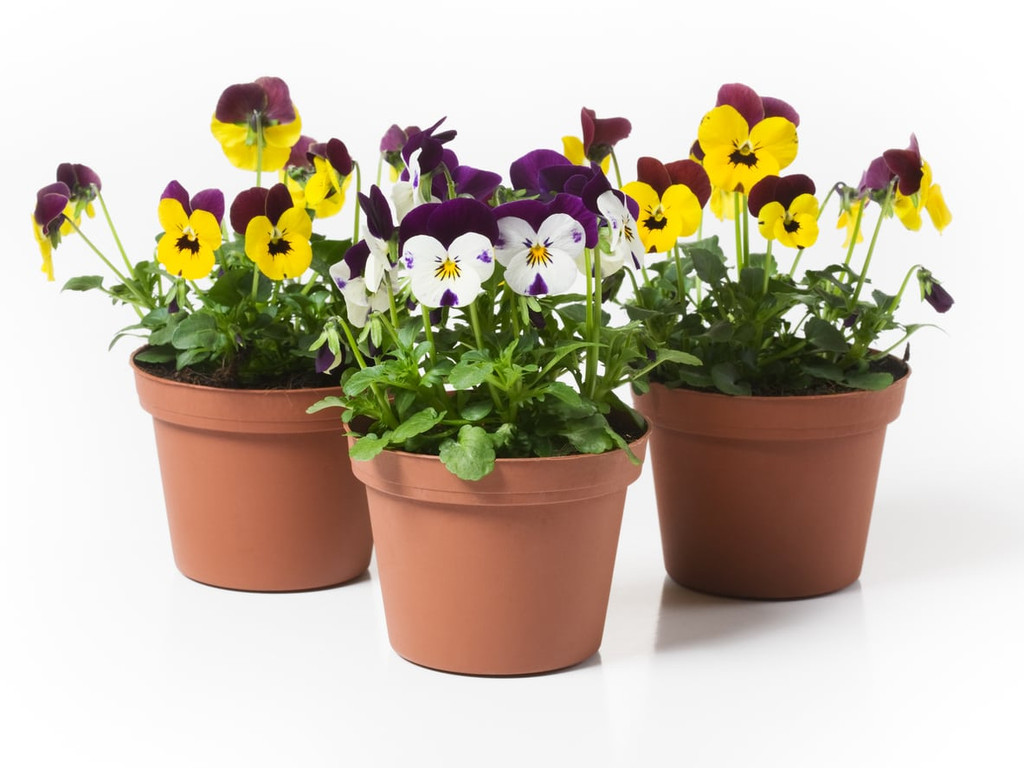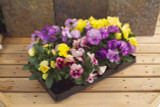Viola
Pansies & Violas
Pansy 5" $8
Pansy Flat $25
Viola Flat $25
Aren't a Pansy and a Viola are one and the same?
There is a slight difference.
All Pansies are Violas but not all Violas are Pansies.
Botany classification can be confusing, what's up with these classifiers, they need to explain themselves.
If the flower has four petals pointing upward and only one pointing downward – you’re looking at a Pansy.
If the flower has two petals pointing upward and three petals pointing downward – you’ve got a Viola.
Visit our Planters Containers & Pottery Section to browse our container offerings Planters Containers & Pottery
The garden pansy is a type of large-flowered hybrid plant, cultivated as a garden flower.
It is derived by hybridization from several species in the section Melanium of the genus Viola, particularly Viola tricolor, a wildflower of Europe and western Asia, known as heartsease.
Pansies perform best in cooler weather, usually planted in spring or fall.
They like rich, well-drained soil high in organic matter, and full sun or partial shade.
Pansies will develop best when night temperatures are in the 40's F and day temperatures are in the 60 F range.
They are extremely cold hardy, and will bloom any time the temperature is above freezing.
To keep up with caring for your container-grown pansies, water the flowers regularly so that the soil is always moist but not soggy.
Indirect sunlight is best for the Pansy in a container.
Most often, pansies are used to symbolize loving feelings.
Pansies can also represent free-thinking and consideration.
Violas were imported from Europe in the 18th century.
Viola flowers are smaller than their Pansy cousins – about the size of a nickel – but much more abundant.
Violas also tend to be more heat and cold tolerant, so that means an extended blooming season.
The range of colors is not as extensive as Pansies, but the traditional solid colors are available.
We do not warranty or guarantee any living plant. No returns or exchanges on live plants. All sales are final on live plants.
For more information please see our Terms and Conditions








